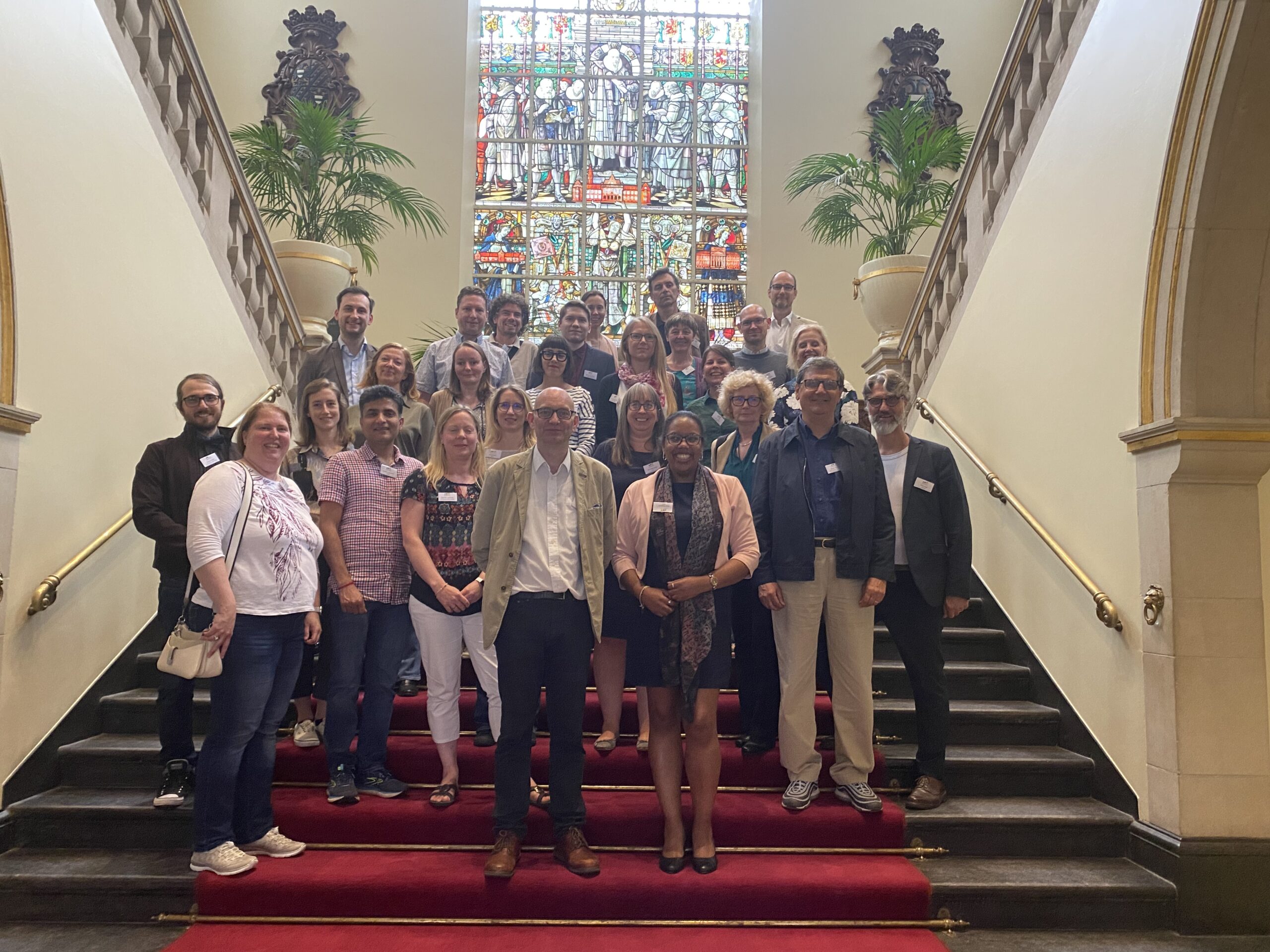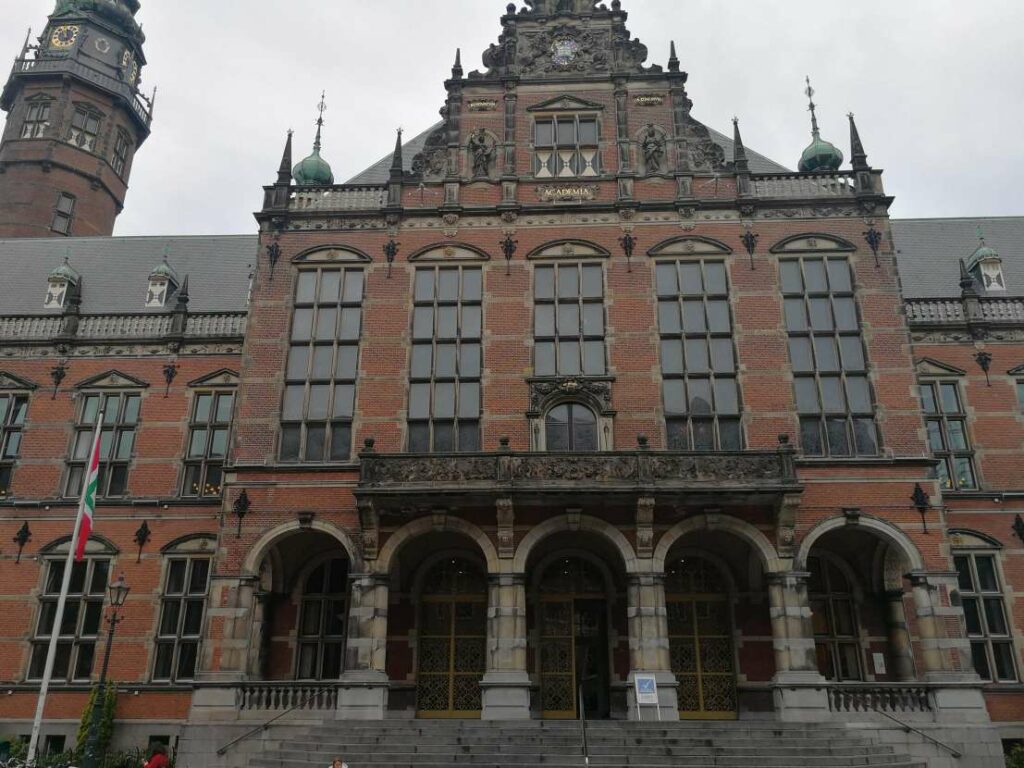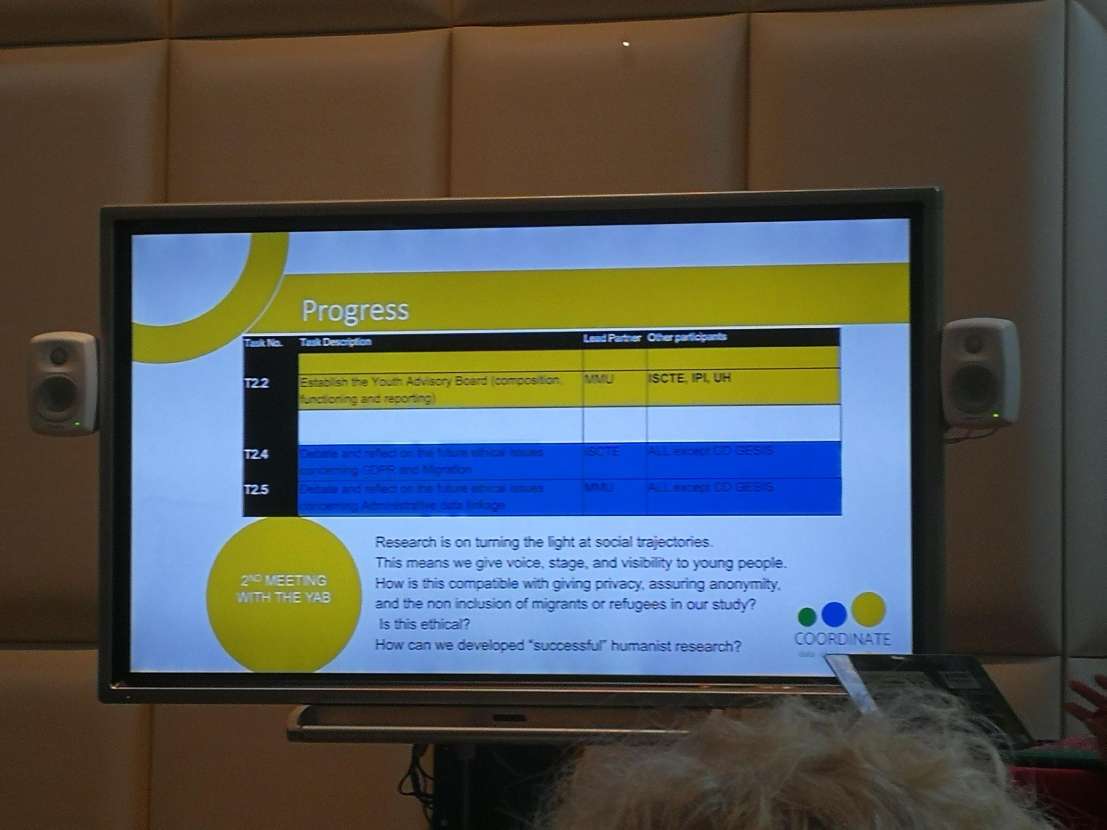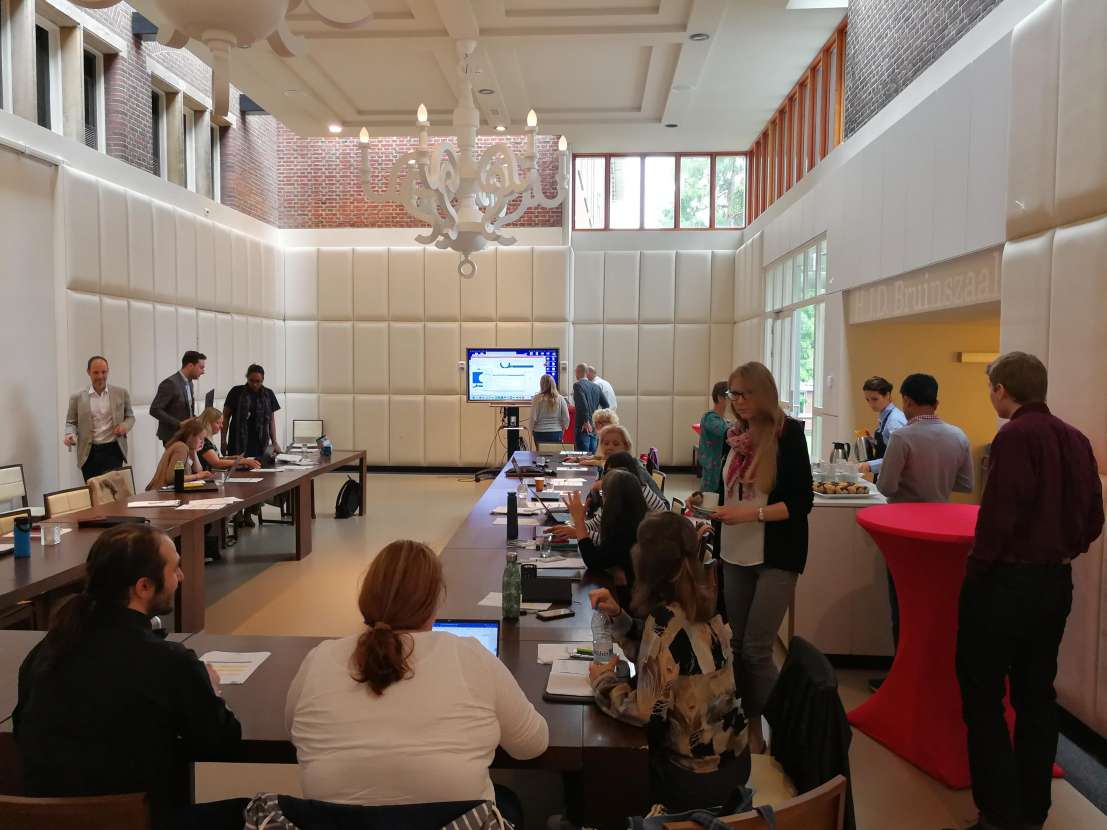
Second Project Meeting of COORDINATE (COhort cOmmunity Research and Development Infrastructure Network for Access Throughout Europe)

The leads of the 12 work packages of the COORDINATE project are meeting today in the historical Academy Building of the University of Groningen, the Netherlands, in the very room where doctoral students defend their PhD dissertations. Thirty-five researchers and field practitioners from the 19 project partner institutions and organisations, all committed to collecting data that will inform policies designed to improve child well-being, are gathered to discuss, among others, the methodological and ethical implications of longitudinal surveys with children cohorts.

cApStAn’s contribution to the debate ranges from harmonisation of translation procedures to ensuring that data collection instruments will be adapted to be culturally sensitive yet comparable for each EU member state. A topic of special interest for cApStAn’s Steve Dept, present at the meeting, is gender identification of children as it will be reflected in the translated questionnaires.
This is the first Europe-wide birth cohort survey that will track children’s well-being as they grow up. One question that arose was: if the children migrate to another country at some point in their life course, would that mean that they drop out of the survey, or should an attempt be made to keep tracking them, if they agree? The right to be forgotten is certainly very important, but shouldn’t there also be a right to be remembered? Food for thought.
A bit of background information:
COORDINATE is the next phase of the GUIDE (Growing Up In Digital Europe) project funded by the Horizon 2020 programme, in recognition that policymakers across Europe are currently unable to draw upon consistent, comparable and high quality data on child well-being to inform policy.

GUIDE will be an important source of evidence in developing social policies for children, young people and families across Europe for many years to come. It will be an accelerated cohort survey including nationally representative samples of new born babies and school age children.
This project has received funding from the European Union’s Horizon 2020 research and innovation programme.
For an animation on the importance of a Europe wide birth cohort survey visit:
https://www.eurocohort.eu/news/eurocohort-now-explained-in-a-short-animation/id/165